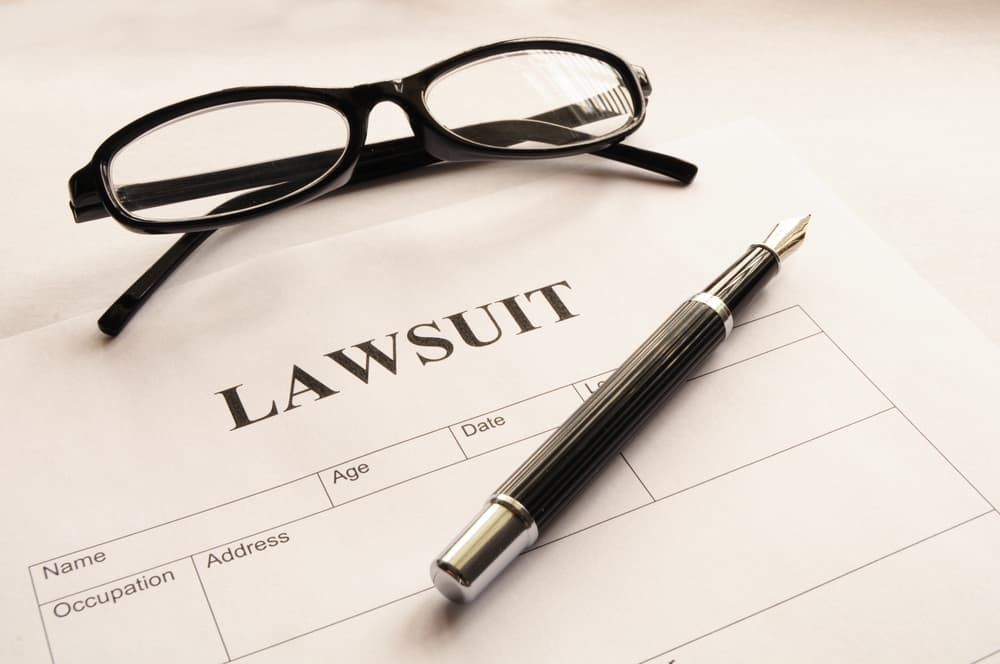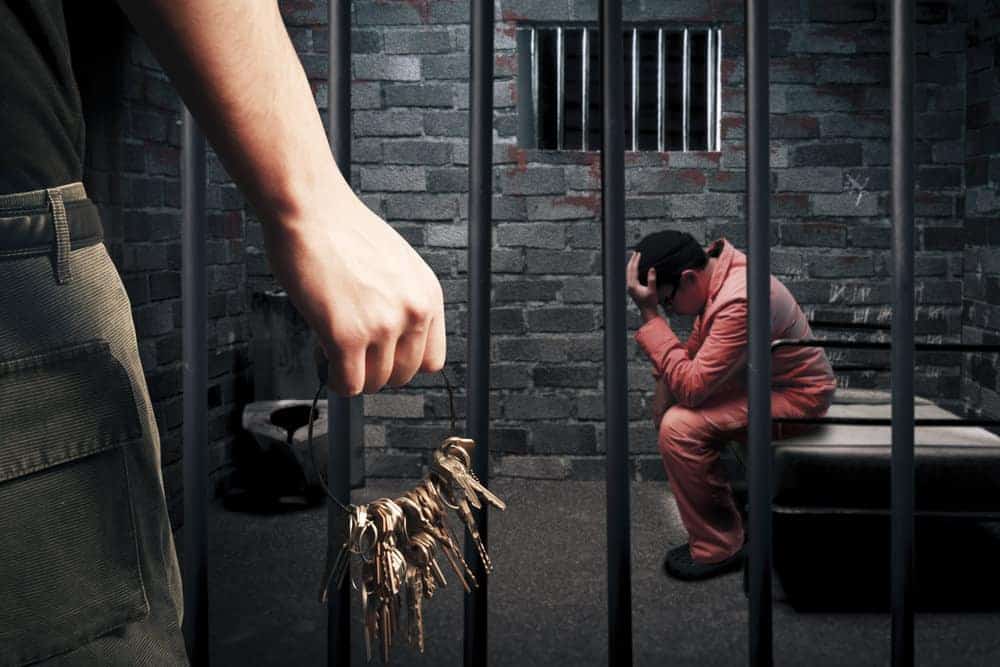Wrongful imprisonment is a deeply distressing experience for victims who have spent years behind bars for crimes they did not commit. Beyond personal hardships, this unjust circumstance raises critical questions about the civil rights of the individuals affected and the state’s responsibility in securing justice for them. This article will examine whether an individual can sue the state for wrongful imprisonment and the potential legal frameworks for seeking compensation.
Wrongful imprisonment often results from flaws within the criminal justice system, such as mistaken identities, false confessions, and prosecutorial misconduct. As a result, exonerees must navigate a complex legal landscape to seek redress for their unjust confinement. As we delve into this topic, we will explore the legal avenues available to those wrongfully imprisoned and assess the potential challenges that victims may face in their pursuit of justice.
Moreover, the repercussions of wrongful imprisonment extend far beyond the individuals directly affected, as it exposes systemic shortcomings in the administration of justice. In this context, understanding the legal options at one’s disposal and the potential for success in a lawsuit against the state are integral in promoting accountability and reform within the criminal justice system. As we investigate this critical issue, we aim to provide clarity and guidance for those who this grave miscarriage of justice has unjustly impacted.
Wrongful Imprisonment Causes
False Arrest
Wrongful imprisonment often begins with a false arrest. A false arrest occurs when police detain an individual without probable cause. This can happen when the police rely on inaccurate information, such as false witness statements, leading to the arrest of an innocent person. An individual may also be mistakenly identified as the perpetrator due to poor investigative techniques or racial bias.
In some cases, the convicted person may be found guilty of a serious crime, such as murder, even though they are innocent. As a result, they may spend years, sometimes decades, in prison or even on death row before being exonerated.
False Confession
Another common cause of wrongful imprisonment is a false confession. Under pressure from police and detectives during interrogations, an individual may feel compelled to confess to a crime falsely they did not commit. This can occur through force, intimidation, or even psychological manipulation.
A false confession can have significant consequences for the accused, as it is often considered strong evidence of guilt. Once a false confession is obtained, the focus of the investigation may shift from seeking the true perpetrator to building a case against the individual who confessed. This can lead to the wrongful imprisonment of an innocent person and the guilty party remaining free.
Official Misconduct
Unfortunately, official misconduct is another factor that can lead to wrongful imprisonment. This can range from police officers planting evidence or coercing witnesses to provide false testimony to prosecutors withholding exculpatory evidence that could prove the defendant’s innocence.
Official misconduct can also involve judges who may sentence individuals to lengthy prison terms without thoroughly examining the evidence presented. In some cases, parole boards may be reluctant to grant parole to individuals convicted of serious crimes such as murder, even if factors suggest they might be innocent.
Overall, wrongful imprisonment is a complex issue with various causes involving different entities in the criminal justice system. However, understanding these causes makes it possible to seek ways to prevent better and address the grave injustices endured by those who are wrongfully imprisoned.
Legal Basis for Suing the State
Constitutional Violations
A lawsuit against the state for wrongful imprisonment can be pursued when there is evidence of constitutional violations. Violations of constitutional rights typically arise from a breach of due process, which guarantees a fair and just legal process for all individuals. Common examples of due process violations include unlawful arrest, coerced confessions, or inadequate legal assistance.
When a wrongfully convicted individual can demonstrate that the government has infringed on their constitutional rights, they may have a basis for suing the state. This pursuit generally involves hiring a lawyer with experience in wrongful conviction litigation to investigate the circumstances of the case and provide legal representation.
State Immunity and Exceptions
In many cases, it may be difficult to sue the state for wrongful imprisonment due to state immunity. Under the doctrine of sovereign immunity, governments are often shielded from liability for their actions. However, there are exceptions to this immunity. For instance, some jurisdictions have enacted statutes that waive the state’s immunity in specific circumstances or allow individuals to bring lawsuits against government entities to be heard in court.
Wrongfully convicted individuals can pursue compensation claims against the state in such exceptions. However, the availability and extent of these exemptions vary significantly among jurisdictions. Therefore, victims of wrongful convictions must consult with legal counsel familiar with the specific laws in their jurisdiction.
Considering constitutional violations and state immunity exceptions, wrongfully convicted individuals may explore the legal basis for suing the state to seek compensation for their lost years, personal suffering, and other damages.

Processes and Challenges in Filing a Lawsuit
Finding a Lawyer
When considering filing a lawsuit for wrongful imprisonment, finding a lawyer with experience handling such cases is crucial. It is essential to research and choose attorneys based on their track record in dealing with similar situations. Lawyers can help clients navigate the complex legal landscape and provide critical guidance. Some attorneys may offer free initial consultations to help plaintiffs determine whether they have a strong case and assess potential legal fees.
Filing the Lawsuit
The process of filing a wrongful imprisonment lawsuit involves several steps, including:
- Drafting a Complaint: Plaintiff’s lawyer will draft a formal complaint outlining the facts of the case and the specific legal claims, such as violation of civil rights, false imprisonment, or malicious prosecution.
- Filing the Complaint: The complaint is filed in a court with jurisdiction over the case, typically in the state where the wrongful imprisonment occurred. Some courts may require plaintiffs to pay a filing fee at this stage.
- Serving the Defendant: The defendant (usually the state, its agency, or its officials) must be served with the complaint and allowed to respond. A process server or a detective typically performs this.
- Discovery: Both parties engage in discovery, exchanging relevant information and evidence supporting their respective claims and defenses.
- Settlement or Trial: Many cases may settle before going to trial, with the state offering the wrongfully imprisoned individual compensation for their damages. If a settlement is not reached, the case proceeds to trial, where a judge or jury will decide the outcome.
Filing a wrongful imprisonment lawsuit is not an easy or quick process. It typically involves significant legal fees, time, and emotional investment from the plaintiff. Additionally, proving that the state or its officials acted wrongfully can be challenging, and there’s no guarantee of success. Barriers such as prosecutorial immunity and statutes of limitations may further complicate matters. Despite these challenges, pursuing a wrongful imprisonment claim could give the wrongfully imprisoned person the compensation and sense of justice they deserve.
Compensation and Damages
Monetary Compensation
In cases of wrongful imprisonment, monetary compensation is often awarded to make up for the financial losses that the wrongfully incarcerated individual has experienced. This includes lost wages or the earnings the person would have made had they not been imprisoned. Additionally, damages for pain and suffering can be claimed due to the emotional distress experienced during the incarceration.
Compensation claims may cover the following:
- Lost wages
- Pain and suffering
- Direct costs, such as attorney fees and court expenses
Often, the compensation awarded is determined through a settlement or court ruling. The monetary value may vary, depending on the time spent incarcerated and other circumstances surrounding the wrongful imprisonment.
Reputation Restoration
Wrongful imprisonment can significantly impact a person’s life, including their reputation. In these instances, reputation restoration is crucial to ensure the individual’s prospects are not hindered by their wrongful incarceration. This process may involve:
- Expungement of criminal records
- Public acknowledgment of the wrongful incarceration
Acknowledging wrongful incarceration will help the affected individual rebuild trust in their community and minimize the long-term effects of the false charges.
Social Services
Beyond monetary compensation and reputation restoration, social services may be provided to wrongfully incarcerated individuals to aid their reintegration into society. These services may include:
- Job training and placement
- Mental health counseling
- Access to healthcare
These support services are essential in helping wrongfully incarcerated individuals regain their footing, find stability, and rebuild their lives after their release. In addition, providing social services can help minimize the negative impact of wrongful imprisonment on a person’s life.
Notable Cases and Exonerations
Case 1
In 1990, a man from New York was wrongly convicted of rape and served 16 years in prison. However, with the help of the Innocence Project, he was exonerated in 2006 due to DNA evidence proving his innocence. This significant case highlights the importance of DNA exonerations in the fight for justice.
The Innocence Project, a non-profit organization, played a crucial role in this case by providing the necessary resources and expertise to pursue the exoneration. They continue to work on behalf of the wrongfully convicted, using the power of DNA evidence to reveal the truth and free innocent individuals.
Case 2
In Mississippi, a man was wrongly convicted of murder in 1992 and spent 16 years on death row. After a long and arduous legal battle, the National Registry of Exonerations and a team of attorneys from Indiana and Michigan secured his release in 2008. The critical factor in his exoneration was newly discovered DNA evidence.
Across the United States, organizations like the Innocence Project and the National Registry of Exonerations are fighting to right the wrongs of wrongful imprisonment. In Wisconsin, another man was exonerated after serving 18 years for a crime he did not commit. The reexamination of DNA evidence ultimately led to his freedom and a renewed mission to assist other wrongfully convicted individuals.
State Compensation Statutes
Texas
In Texas, individuals who have been wrongfully imprisoned can seek compensation through the state’s compensation statute. Under the Tim Cole Act, exonerees can receive up to $80,000 per year of imprisonment, college tuition assistance, and additional funds for lost wages and child support. Texas also offers a monthly annuity for those who qualify. However, to pursue compensation, exonerees must file a claim with the State Comptroller’s Office within three years of their release or exoneration.
New York
New York’s wrongful conviction compensation statute allows exonerees to file a claim against the state for damages. Compensation can include monetary compensation for each year of imprisonment, lost wages, and other damages from wrongful imprisonment. The claim must be filed within two years of the exoneration date. New York law does not limit the amount of compensation awarded to an individual wrongfully imprisoned.
Wisconsin
Wisconsin has a compensation statute for individuals who were wrongfully convicted and imprisoned. The statute allows for compensation up to $5,000 per year of wrongful imprisonment, with a maximum limit of $25,000. Exonerees must file a claim with the Wisconsin Claims Board within one year of their release, and the board then evaluates the claim and awards compensation.
Mississippi
In Mississippi, wrongfully imprisoned individuals can seek compensation for their wrongful conviction under the state’s compensation statute. The court determines the amount of compensation and can include damages for physical and emotional suffering, lost wages, and education and housing assistance. Compensation claims must be filed within three years of the date of exoneration.
Indiana
Indiana’s compensation statute for wrongfully convicted individuals allows exonerees to receive $50,000 per year of wrongful imprisonment. Exonerees must submit a claim to the Indiana Criminal Justice Institute within five years of release to file a claim. The Institute reviews the claim and then submits a recommendation to the Indiana State Budget Committee, ultimately deciding the compensation amount.
Michigan
Michigan’s state compensation statute provides for wrongfully convicted individuals, offering $50,000 per year of wrongful imprisonment. Exonerees must file a claim with the Michigan Court of Claims within three years of release or exoneration. In addition to monetary compensation, Michigan law also provides that exonerees are eligible for state-funded housing, education, and job training assistance.
Conclusion
False imprisonment can significantly impact an individual’s life in the criminal justice system. As a result, someone who has been wrongfully imprisoned may want to seek justice through a civil court process.
One of the primary ways to do this is by pursuing a lawsuit against the responsible entity, be it the state, city, or another governmental body. The process generally involves proving one’s innocence and demonstrating the harm resulting from false imprisonment.
A key factor for success in pursuing such claims is obtaining adequate legal representation. This ensures the plaintiff can effectively navigate the complex legal system and present a solid case.
Remembering that while suing the state or city for wrongful imprisonment is possible, the process can be challenging and time-consuming. Nonetheless, it represents an important avenue for victims seeking to reclaim their lives and secure compensation for their damages.

FAQs
Can you sue the state for wrongful imprisonment?
Yes, individuals who have been wrongfully imprisoned can sue the state for compensation. This legal action is typically filed as a wrongful conviction and imprisonment lawsuit.
On what grounds can someone file a wrongful conviction and imprisonment lawsuit?
Common grounds for filing a wrongful conviction and imprisonment lawsuit include the following:
- Ineffective assistance of counsel
- Suppression of exculpatory evidence
- Malicious prosecution
- Witness misidentification
- False confession
- Police misconduct
What compensation can be sought in a wrongful imprisonment lawsuit?
Damages that may be sought in a wrongful imprisonment lawsuit include:
- Lost wages and future earning capacity
- Pain and suffering
- Medical expenses
- Legal fees
Is there a deadline to file a wrongful imprisonment lawsuit?
Yes, a statute of limitations differs from state to state. Therefore, it is essential to consult with an attorney to determine the deadline for filing a lawsuit in the state where the wrongful imprisonment occurred.
Do all states have compensation statutes for wrongful imprisonment?
Most states have wrongful imprisonment compensation statutes. However, the eligibility criteria and the compensation amount can vary significantly by state.
How long does a wrongful imprisonment lawsuit take to resolve?
The length of a wrongful imprisonment lawsuit can vary depending on the case’s complexity, the evidence’s availability, and the court’s workload. It can take anywhere from a few months to several years to resolve.



